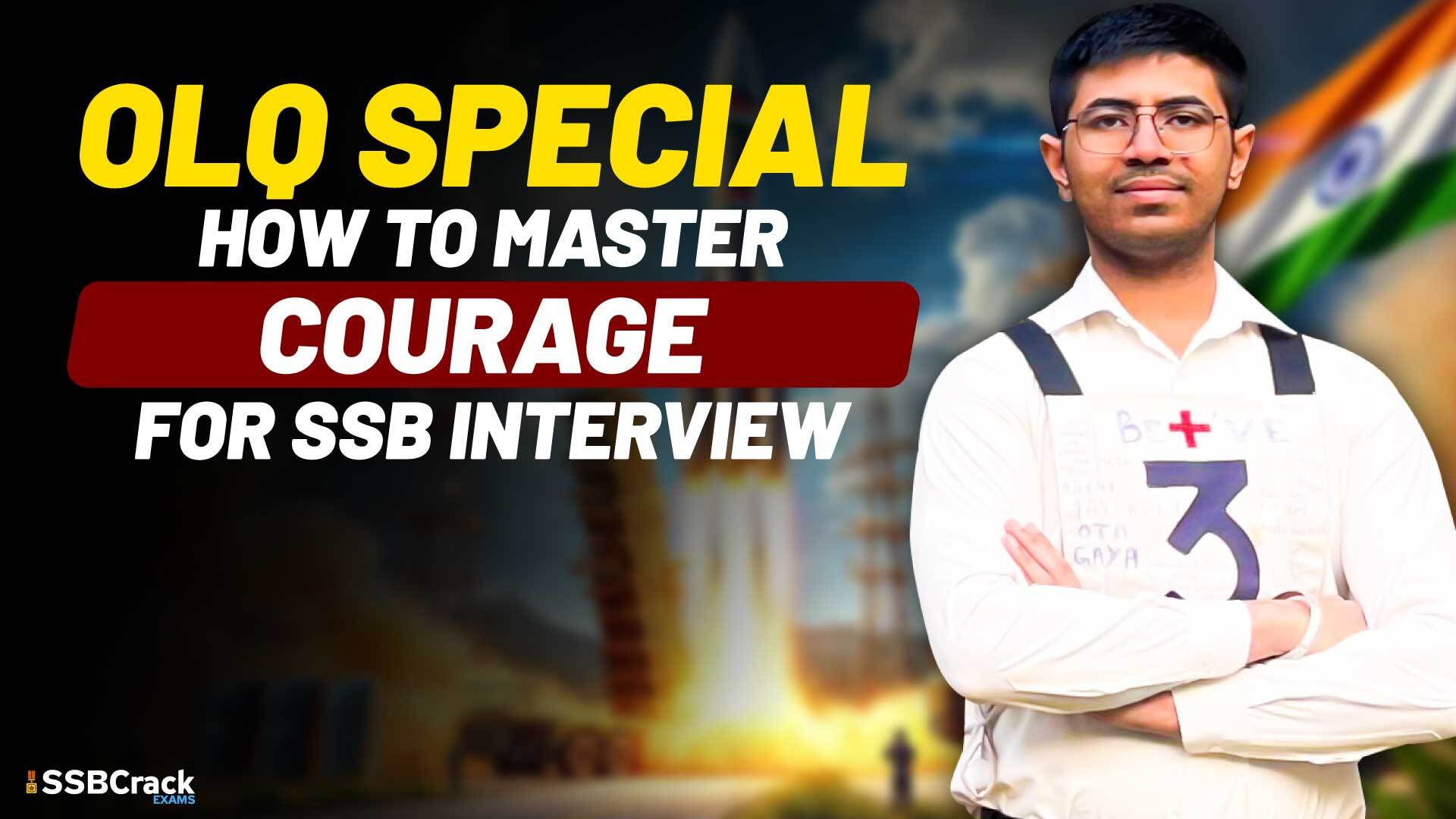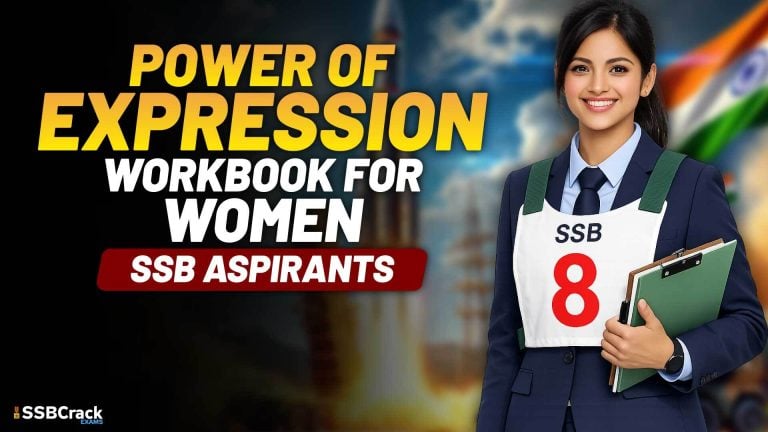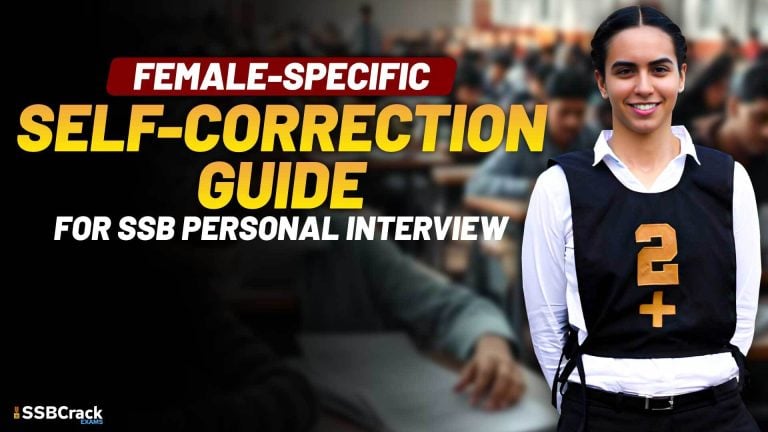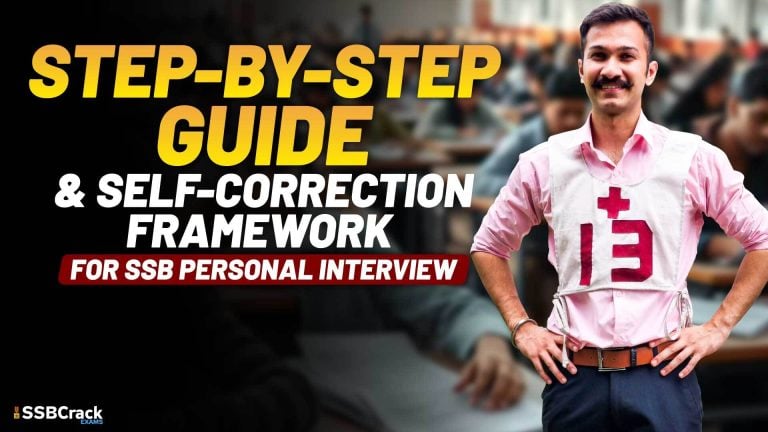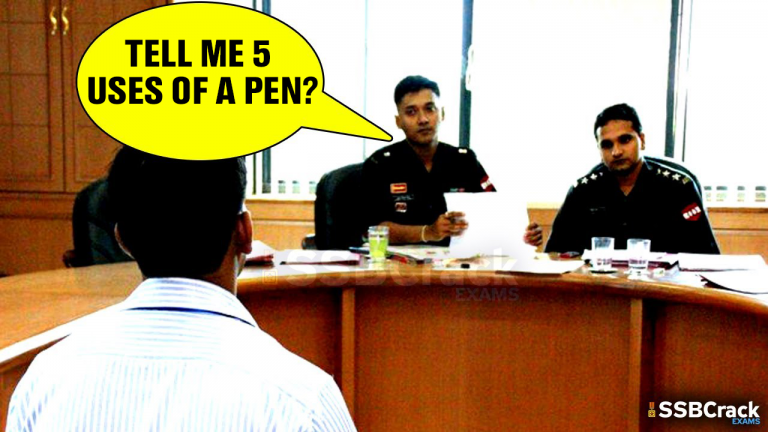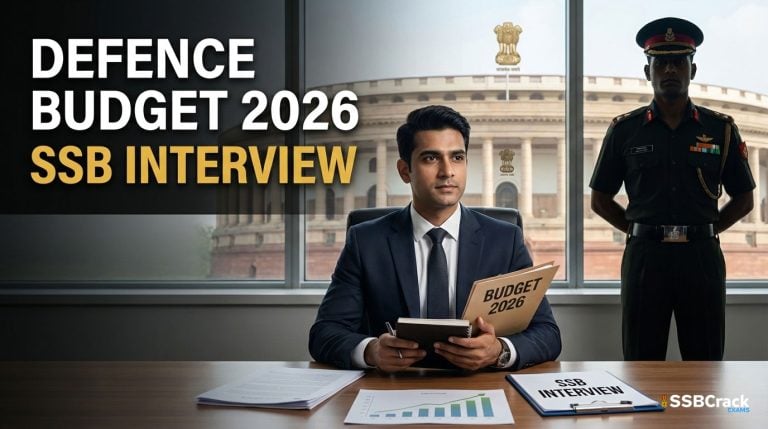Among the 15 Officer Like Qualities (OLQs) evaluated in the SSB Interview, Courage is one of the most defining traits of a future leader in uniform. In military life, courage is not just about facing bullets on the battlefield — it’s about showing moral strength, standing for what is right, taking responsibility in adversity, and facing fears with conviction.
In the SSB, courage is assessed not just through your physical actions, but through your decisions, behavior, words, and mental resilience.
This article will help you understand:
- What Courage means in the SSB context
- Where it is most prominently evaluated
- How assessors look for this quality
- How an aspirant can demonstrate courage effectively
- Practical tasks to develop Courage in real-life situations
What Is Courage?
Courage is the ability to face fear, danger, risk, or adversity with confidence and composure. It includes both physical bravery and moral courage — standing up for what’s right, even if it is unpopular or difficult.
A courageous candidate:
- Acts confidently in unfamiliar or risky situations
- Takes a stand when others hesitate
- Faces failure or criticism without backing down
- Volunteers for responsibility, even under pressure
- Admits mistakes without fear or excuse
- Remains calm and firm during group pressure or challenges
Where Is Courage Assessed in the SSB?
1. GTO Outdoor Tasks
This is the primary domain where courage visibly reflects:
🔹 Snake Race (Group Obstacle Race)
- Shows physical courage — pushing through muddy, risky, physically exhausting situations
- Jumping obstacles, crossing walls, carrying ropes — all test your fear response and attitude
🔹 Individual Obstacles (IO)
- How many tasks do you attempt? Do you retry failed ones?
- Climbing heights, balancing on beams, and leaping — these require facing your fear with composure
🔹 Command Task
- Do you confidently take command and handle the pressure?
- Do you take responsibility for decisions and give clear instructions?
2. Psychological Tests
🧠 TAT (Thematic Apperception Test)
- Is your hero facing a tough moral or physical challenge with resolve?
- Is there a moment of difficulty where they stay firm, protect others, or act despite danger?
🧠 SRT (Situation Reaction Test)
- Do you act bravely in emergency situations like fire, theft, assault, accident, peer pressure?
🧾 SDT (Self-Description Test)
- Do others see you as someone who stands for truth, takes challenges head-on, or acts without fear?
3. Personal Interview
- The Interviewing Officer may probe incidents where you were under pressure or risk
- He may also test moral courage through questions like:
- “Would you report your friend if they cheated?”
- “What would you do if your officer gave an unethical order?”
- “Have you ever stood up for someone in trouble?”
How Is Courage Evaluated?
Assessors watch for:
- Risk-taking attitude with awareness of consequences
- Mental steadiness during uncertainty or criticism
- Physical fear-handling in IO and Snake Race
- Moral uprightness when facing ethical dilemmas
- Initiative in critical moments — Do you volunteer, step up, speak up?
Courage doesn’t mean aggression or recklessness. It means controlled strength backed by character.
How Can Aspirants Showcase Courage in the SSB?
✔️ In Outdoor Tasks:
- Attempt as many obstacles as possible in IO, even if you’ve never done them before
- In Snake Race, don’t shy away from dirty/messy/risky parts — lead with energy
- Be ready to take the lead or give your solution in group tasks
- If your idea fails, suggest another — don’t go silent
✔️ In Psychology Tests:
- TAT: Let your protagonist take bold action to help others or resolve the crisis
- SRT: Act quickly and responsibly in tough situations (fire, road accident, harassment)
- SDT: Write how you’re known for being calm and brave in difficult times
✔️ In the Interview:
- Share personal examples:
- Helping someone in trouble
- Speaking out against injustice
- Facing stage fear or public embarrassment
- Taking the harder road in academics or sports
- Be honest — even admitting past fear but overcoming it shows real courage
How to Develop Courage in Daily Life
At Home:
- Take Responsibility During Unexpected Situations
- Power cut, kitchen fire, illness — be the first to respond
- 🔹 Builds reflexive confidence under pressure
- Admit Mistakes Openly
- Accept faults without hiding or blaming
- 🔹 Strengthens moral courage
At School/College/University:
- Participate in Public Speaking or Theatre
- Overcoming stage fear is a powerful courage-builder
- 🔹 Boosts expressive courage
- Raise Your Voice Respectfully
- If you witness unfair treatment or discrimination, speak up
- 🔹 Develops social/moral courage
- Push Yourself in Sports or Physical Training
- Try new or difficult drills, practice in rain/cold, challenge physical limits
- 🔹 Strengthens physical endurance courage
At Workplace/Internship:
- Take on Challenging Tasks Without Waiting
- Volunteer even when unsure — learn on the job
- 🔹 Shows readiness to handle pressure
- Stand by What’s Right
- If a colleague is mistreated or wronged, offer support
- 🔹 Demonstrates ethical leadership
- Handle Criticism Professionally
- Accept feedback with grace, not ego
- 🔹 Grows emotional and intellectual courage
Final Thoughts
Courage is the fire inside an officer’s soul. It is what makes you walk into uncertainty, make the tough call, stand firm when others retreat, and act for the greater good — not out of pride, but out of responsibility.
At the SSB, courage is not always about physical strength, but about emotional and moral resilience. The candidate who rises in difficult moments, without being loud or aggressive, leaves a lasting impression on the assessors.
